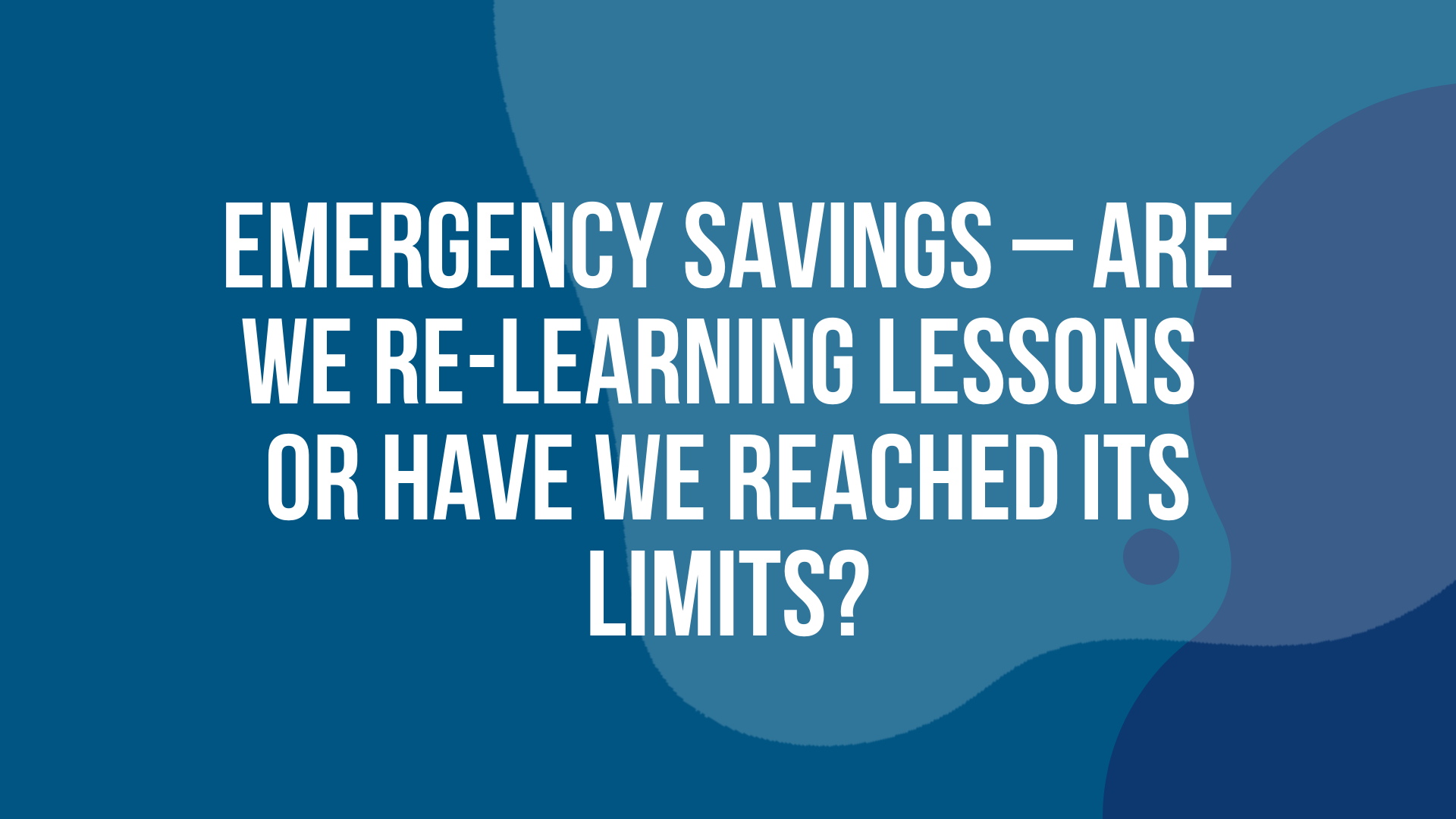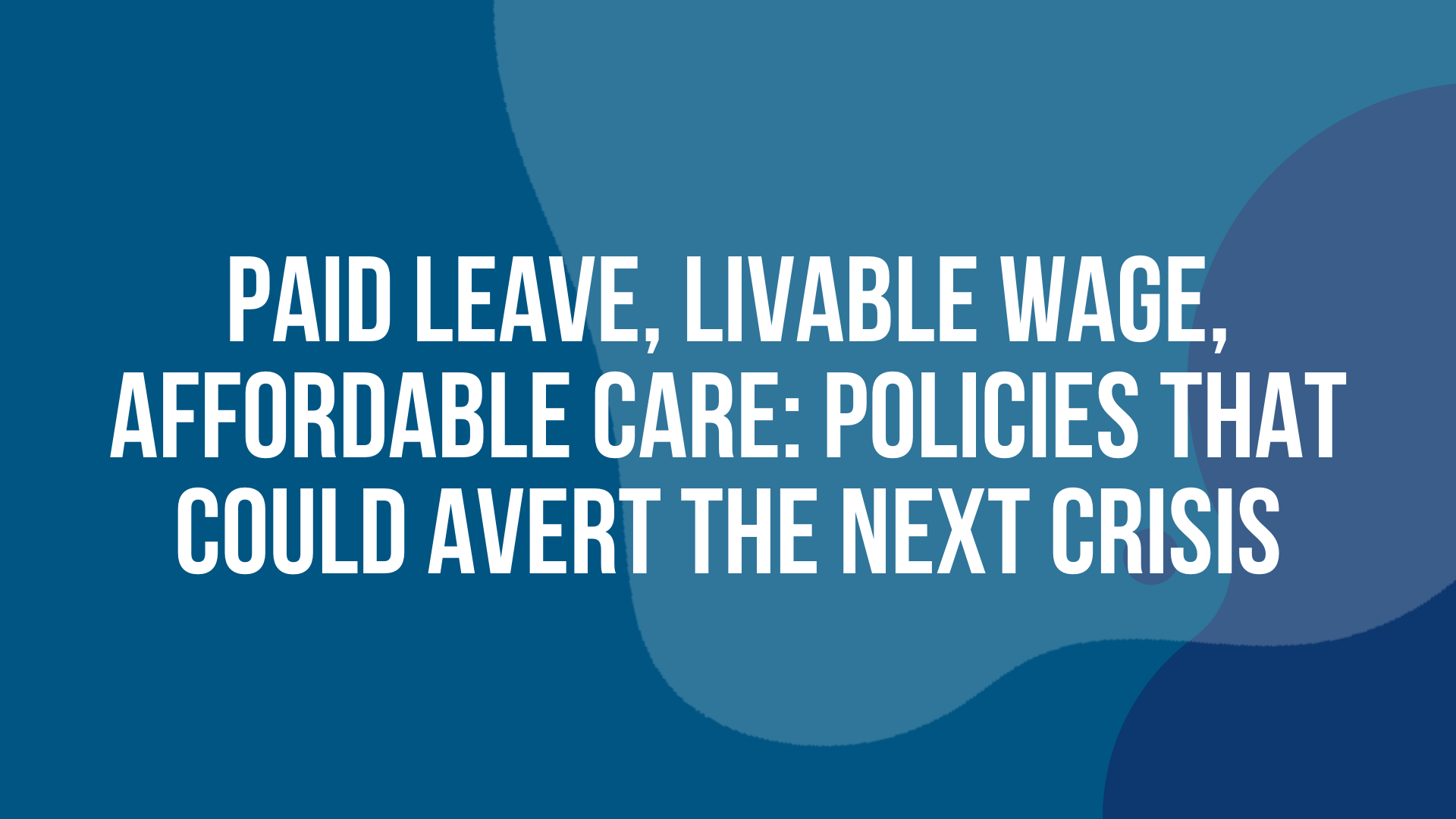When Retirement Savings meets Economic Crisis: Lessons from COVID-19
Nearly 50 million Americans – disproportionately, people of color — do not have access to a retirement savings account at work. And for millions who do have access to a workplace retirement savings account, their 401(k) is their only form of savings.
The economic crisis caused by COVID-19 is forcing many to ask critical questions about the retirement savings system in the US. Why doesn’t every American have access to a tax-advantaged savings account to invest and grow their money? What amount of liquidity is the right amount– for emergencies both big and small? How do we create accessible retirement benefits — regardless of who people are, where they work, or how much they get paid?
Leading thinkers across the retirement ecosystem, from business leaders to policymakers discussed why COVID-19 may finally be the moment to create the fully inclusive and equitable savings system that Americans deserve.
The Aspen Institute Financial Security Program’s work on retirement savings is made possible with support from AARP, MetLife Foundation, JPMorgan Asset Management, and Prudential.
Featured Speakers
 Carl Camden
Carl Camden
Founder and President, iPSE-U.S.
Carl has dedicated more than 25 years to advocating for the independent workforce. As President and CEO of Kelly Services, a Fortune 500 workforce solutions firm, he spent his career creating opportunities and seeking justice for independent workers; challenging government, business leaders, and educators to adapt to the future of work; and serving on boards for the Federal Reserve, the Committee for Economic Development/The Conference Board, multiple universities, and numerous think tanks. In 2017 he assembled industry leaders, House members from both parties, and association leaders for an exclusive D.C.
event (“Advancing the Social Contract For Gig Economy Workers”) that became the genesis for iPSE-U.S.. Before joining the corporate world, Carl was a tenured college professor, and started and sold his own marketing research firm.
 Michael W. Frerichs
Michael W. Frerichs
Illinois State Treasurer
Michael Frerichs (pronounced FREH-ricks) was first elected Illinois State Treasurer in November 4, 2014 and re-elected on November 6, 2018. In Illinois, the Treasurer’s office predates the state’s incorporation in 1818. Voters in 1848 chose to make it an elected office. Frerichs is the 74th person to serve in this role.
In Illinois, the Treasurer is the state’s Chief Investment and Banking Officer. The office invests money on behalf of the state and local units of government. Frerichs also believes in providing individuals with financial tools so that they can invest in themselves. He does this by encouraging savings plans for college and trade school, increasing financial education among all ages, removing barriers to a secure retirement, and reuniting Illinois residents with their unclaimed property. The Treasurer’s Office actively manages approximately $31 billion. The investment approach is cautious to ensure the preservation of principal. The investment returns are significant: For every $1 spent to run the office, Frerichs nets $42 for the state’s residents.
Since taking office, Treasurer Frerichs has made significant strides in the fight for consumers by making sure Illinois residents get what is owed to them through the Unclaimed Property Program. A recordbreaking $239 million in forgotten cash and stock was returned to individuals, employers, and nonprofits in Fiscal Year 2019. By making changes to the Bright Start and Bright Directions College Savings Programs, Frerichs has lowered fees and provided more investment options, making college more affordable for families saving for their child’s future.
Under Treasurer Frerichs’ leadership, Illinois launched the Illinois Achieving a Better Life Experience Program (ABLE), a savings and investment program that allows people with disabilities and their families to save and build financial wellness without risking federal benefits. Illinois leads the 17-state bipartisan National ABLE Alliance, which offers people with disabilities nationwide a high-quality, lowcost ABLE savings and investment program. In November 2018 Treasurer Frerichs launched Secure Choice, a retirement savings program that will benefit an estimated 1.2 million private-sector workers in Illinois who do not have access to an employer-sponsored retirement plan.
Treasurer Frerichs was born and raised in the small, downstate farming community of Gifford, Illinois. He graduated from Yale University and spent two years in Taiwan where he taught English to young students and learned to speak Chinese. He returned to Champaign County and launched his own technology business. He was elected to the Champaign County Board and elected Champaign County Auditor. He also served as a volunteer firefighter. In 2006, Frerichs was elected Illinois State Senator representing east-central Illinois. As chairman of the Higher Education Committee he championed efforts to make college more affordable. He also served as chairman of the Agriculture and Conservation Committee and became a Certified Public Finance Officer. Frerichs currently serves on the Executive Committee of the National Association of State Treasurers, the National Association of State Auditors, Comptrollers, and Treasurers, the College Savings Plan Network, and the National Association of Unclaimed Property Administrators. He also serves as a trustee on the Illinois State Board of Investment. Treasurer Frerichs resides in Champaign with his young daughter, Ella.

Ida Rademacher @idarademacher
Executive Director, The Aspen Financial Security Program @aspenfsp
Vice President, The Aspen Institute@aspeninstitute
Ida Rademacher is a vice president at the Aspen Institute and executive director of the Aspen Financial Security Program. Since joining the Institute in 2015, Ida has combined her expertise in economic inclusion research and policy with her reputation as a collaborative and creative thinker to expand FSP’s efforts to bring to the national forefront a solutions-focused discussion of how America can actually improve economic growth by addressing growing levels of wealth inequality and household financial insecurity.
Her efforts have resulted in the creation of several new cutting-edge initiatives, including the Expanding Prosperity Impact Collaborative (EPIC), the Reconnecting Work and Wealth Initiative, and the Aspen Leadership Forum on Retirement Savings. Through these projects Ida and her team are building a cross-disciplinary community of leaders and change agents who, together, are deeply probing critical financial challenges facing U.S. households and shaping market and policy innovations that can improve the financial security and financial well-being of all Americans.
A resident of Virginia’s Shenandoah Valley and an avid horseback rider, Ida is the first generation in her family to attend college. She pursued postgraduate studies in economic anthropology at the University of Melbourne, Australia; holds a Master of Public Policy degree from the University of Maryland; and a Bachelor of Science degree in anthropology and economics from James Madison University.

Nari Rhee
Director of the Retirement Security Program at the UC Berkeley Center for Labor Research and Education
Nari Rhee, Ph.D., is Director of the Retirement Security Program at the UC Berkeley Center for Labor Research and Education. Her current research focuses on the retirement crisis facing California and the US in the context of declining pension coverage, and policies to improve the retirement income prospects of low- and middle- wage workers. Before returning to the Labor Center in November 2014, she served for two years as Manager of Research at the National Institute on Retirement Security. She formerly held appointments as a Postdoctoral Scholar, Visiting Scholar, and Associate Academic Specialist at the Labor Center. Dr. Rhee has written on a wide range of issues related to pensions and retirement security, including public pension reform, international pension systems, and retirement plan design. Her analysis of the retirement savings crisis and its racial dimensions has received broad media coverage and informed policy debates at the state and national levels.
Dr. Rhee’s previous work engaged a range of issues related to the economic security of low-wage workers, including care work, income inequality, housing affordability, uneven regional development, and labor-community coalition building. She earned a Ph.D. in Geography from UC Berkeley in 2007, an M.A. in Urban Planning from UCLA in 1998, and a B.A. in Anthropology from UC Santa Cruz in 1996.
Learn more
This event is part of the Conversations in Financial Security in Response to COVID-19: How to Triage, Recover, and Stabilize series, an ongoing digital event series hosted by the Aspen Institute Financial Security Program that works to triage the immediate effects of the current pandemic, design solutions allowing households to recover, and address the structural challenges to stabilize financial security at the household level.

